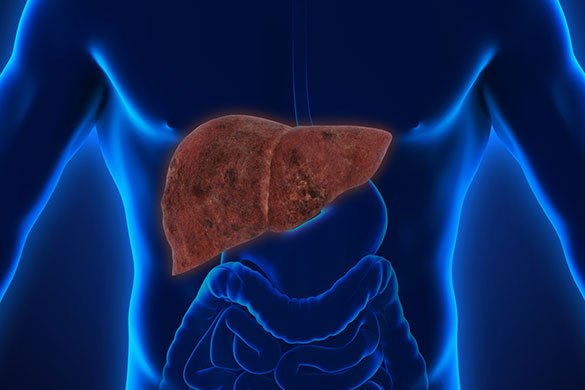Fatty liver disease, particularly its non-alcoholic form (NAFLD), is a growing health concern, closely linked to insulin resistance. Traditionally associated with heavy alcohol consumption, NAFLD is now frequently diagnosed in individuals who consume little to no alcohol. If you’re dealing with this condition, the path to reversal may be more accessible than you think.
The Insulin Resistance Connection
NAFLD is characterized by more than 5% of liver composition being fat. With the rise of insulin-resistant conditions such as pre-diabetes, type 2 diabetes, PCOS, and heart disease, the risk of developing fatty liver increases. High insulin levels drive the body to store fat in unusual places, including the liver. Understanding this connection is crucial: if you have fatty liver disease, you likely have insulin resistance, and vice versa.

Diagnosing Fatty Liver Disease
Identifying fatty liver disease often requires an ultrasound or CT scan to visualize the amount of fat in the liver. Knowing whether you have NAFLD can be a pivotal first step toward improving your health.
Five Ways to Reverse Fatty Liver Disease
1. Delay Your Breakfast. By eating breakfast a little later, you extend the overnight fasting period, keeping insulin levels low and reducing liver fat storage.
2. Opt for a High-Protein, High-Fat Breakfast. Swap out high-carb breakfasts for options like eggs, avocado, Greek yogurt, or smoked salmon. These choices help maintain lower insulin levels while providing sustained energy.
3. Increase Intake of Fatty Fish. Salmon, sardines, and mackerel are rich in EPA and DHA Omega-3 fatty acids, which are beneficial for liver health. Unlike the ALA Omega-3 found in seeds, EPA and DHA have been shown to aid in reducing liver fat.
4. Supplement with Berberine. This natural compound improves insulin sensitivity and regulates blood sugar, which can be beneficial for those with this condition. You can take Berberine supplements in the morning or around higher-carb meals.
5. Prioritize Sleep. Insufficient sleep impairs insulin sensitivity, exacerbating insulin resistance and fatty liver disease. Aiming for 7-8 hours of quality sleep nightly is essential for liver health and overall well-being.

Embracing Healthful Habits
This disease is not an irreversible condition. By adopting the right dietary habits, supplementing wisely, and ensuring quality sleep, you can significantly reduce liver fat and improve its function.
At Brooktree Consulting, I understand the intricacies of conditions like NAFLD and offer personalized Lifestyle Health Coaching to guide you through sustainable health goals. If you’re ready to tackle fatty liver disease head-on, consider scheduling a consultation with me to explore a tailored approach for your needs.
Your liver health is in your hands. Let’s work together to restore your vitality.
Consult with a healthcare provider before making any significant changes to your diet or health regimen, especially if you have a medical condition.



